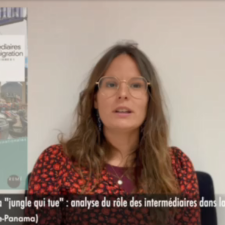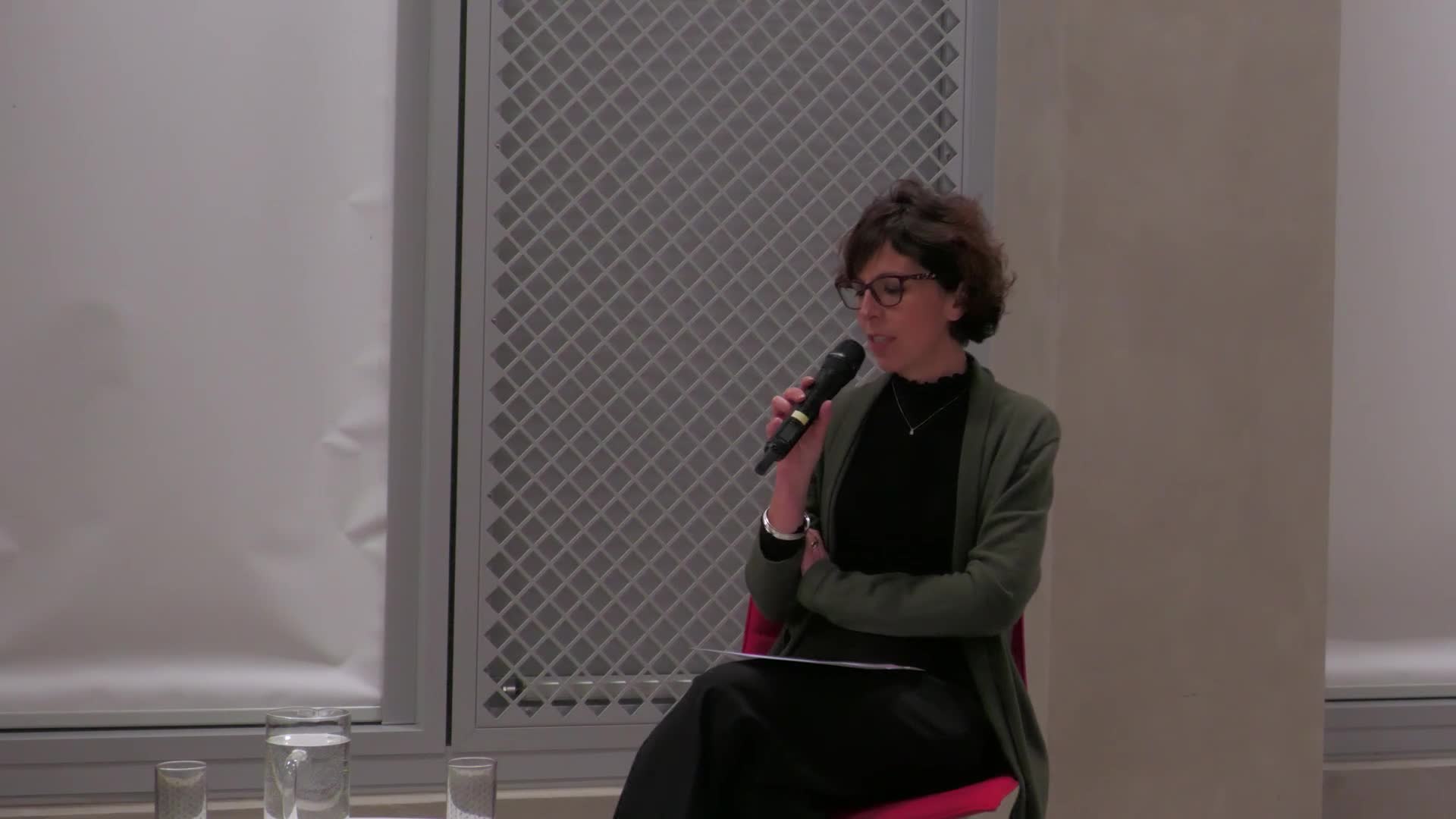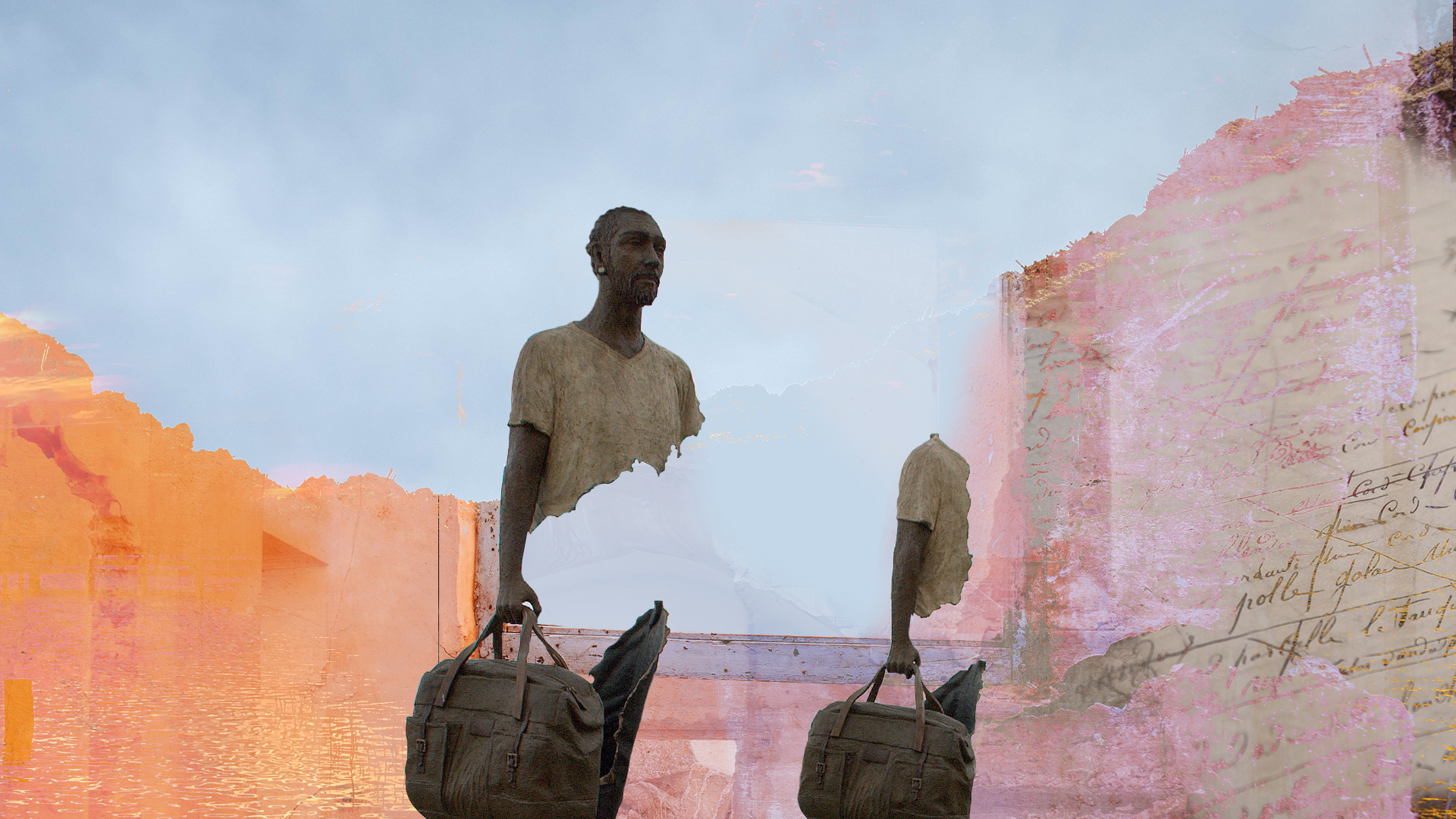Notice
Identité et nation, migrations juives et rapports intercommunautaires au Maghreb colonial
- document 1 document 2 document 3
- niveau 1 niveau 2 niveau 3
Descriptif
Session 2 : Des « jeux de l’échange » au « temps du monde »
Colloque : Migrations, identité et modernité au Maghreb
Colloque international organisé à Essaouira (Maroc), du 17 au 20 mars 2010.
Ce colloque est une initiative d’universitaires français et marocains, auxquels se sont joints des collègues du monde entier, dans un engagement commun pour une lecture pluraliste de l’histoire récente du Maroc et du Maghreb. Accueilli à Essaouira et soutenu par deux instances chargées de la défense des droits humains et de la mise en application des recommandations de l’Instance équité et réconciliation, ce colloque a essayé d’aborder, de façon publique, pour la première fois dans un pays du Maghreb, la question du départ des juifs, recontextualisée dans sa profondeur historique et mise en perspective avec les flux migratoires des communautés musulmanes. Sans esquiver les dimensions spécifiques ni les enjeux politiques de ces départs, il a cherché à en réévaluer la place. Il a pour cela réintroduit au cœur du questionnement les projets migratoires, les parcours de migrants et les dynamiques de constructions communautaires.
En savoir plus : https://www.canal-u.tv/mediamed/migrations-juives-maghreb
Résumé
Much of the literature on the Jews of the Maghreb imagines a singular Jewish community associated to the countries in which Jews lived in the 20th century. These identities, defined as "Tunisian Jews," "Algerian Jews," and "Moroccan Jews," were produced by the creation of national boundaries under colonial rule and the development of national institutions that encompassed the Jewish community of each country. Yet these "fixed" identities conceal a more complicated reality, which was characterized by fluid identities that were contingent of circumstance, migration across political boundaries in the Maghreb and larger Mediterranean world, and the strategic marketplace of citizenship. The different timing of colonialism in the Maghreb in the 19th and 20th centuries, and the distinctive status granted to the Jews by the colonial regimes in Algeria, Tunisia, and Morocco, contributing to a complicated web of relations across the political frontiers. Seeking commercial opportunities, the acquisition of citizenship, or religious training, Jews would migrate across the countries of the Maghreb, or elsewhere in the Mediterranean: Gibraltar, Livorno, Marseilles, etc. Algerian Jews, with their French citizenship might find opportunities in Morocco, while Moroccan rabbis could obtain leadership positions in local Algerian communities. New or developing towns, under the colonial economy, were frequently composed of Jewish migrants from across the boundaries, from Libya to Tunisia or between Eastern Morocco and Western Algeria for example. In examining these diverse migratory patterns, I argue that national identities were much more contingent and ambiguous than is often thought.
Intervention / Responsable scientifique
Sur le même thème
-
Ruth Beckermann parle de son film "Favoriten"
BeckermannRuthInterview de Ruth Beckermann pour son film "Favoriten" en compétition à la 44ème édition du Festival International Jean Rouch en 2025.
-
Lukas Schöffel parle de son film "Tomorrow I Leave"
SchöffelLukasInterview de Lukas Schöffel pour son film co-réalisé avec Maria Lisa Pichler "Mâine Mâ Duc" (Tomorrow I Leave) en compétition pour la 44ème édition du Festival International Jean Rouch en 2025.
-
La pluralité des relations entre l'Inde et l'Afrique
JainPoojaNativelDidierPrésentation de l'ouvrage "La pluralité des relations entre l'Inde et l'Afrique", avec Pooja Jain-Gregoire et Didier Nativel
-
Mesurer les mobilités humaines : Méthodes et enjeux - - CoSavez-vous ? Migrations
Un des défis des questions liées aux migrations est de savoir quantifier ce dont on parle. Les données sont rarement indiscutables. Comment les chercheur.es et les institutions s’efforcent-ils/elles
-
REMI Capsule #2 | Briser le mythe de la « jungle qui tue » : analyse du rôle des intermédiaires dan…
SarrutMarilouMarilou Sarrut (doctorante en géographie, Université Paris Cité, CESSMA) présente son article « Briser le mythe de la "jungle qui tue" : analyse du rôle des intermédiaires dans la traversée du Darién
-
REMI Capsule #1 | Histoires et récits du trafic de migrants : le soft power des passeurs djiboutien…
LauretAlexandreAlexandre Lauret (docteur en géographie humaine, chercheur associé au LADYSS) présente son article « Histoires et récits du trafic de migrants : le soft power des passeurs djiboutiens » paru dans le
-
Ciné-dialogues Afrique 2024-2025. Séance 3/8 : Sarraounia (1986) de Med Hondo. Dialogue entre Abdou…
BruzzoneAnnaWarAbdoul AliCiné-dialogues Afrique 21-01-25
-
Loin des yeux, près du coeur
PalashPolinaThauvinLucUne enquête ethnographique sur les relations d’entraide intergénérationnelle dans une famille colombienne traversée par des migrations depuis plus de 20 ans.
-
Voix aux chapitres #7 : autour de l'ouvrage "Asie centrale 300-850. Des routes et des royaumes"
HuretRomainKiesowRainer MariaLa VaissièreÉtienne deArnouxMathieuBlitsteinPablo ArielMartinez-SèveLaurianneLa septième séance de Voix aux chapitres est consacrée à l'ouvrage Asie centrale 300-850. Des routes et des royaumes, d’Etienne de la Vaissière (Les Belles Lettres, 2024) se tient 9 janvier 2025, à l
-
EXIL ET SOLIDARITE ANTICOLONIALE : MARIO PINTO DE ANDRADE ET SARAH MALDOROR
VasconcelosÁlvaro deAndrade deAnnouchkaApaLiviaSoutoEgídiaMário Pinto de Andrade a choisi de s'exiler à Paris dans les années 1950, à une époque où la capitale française était le carrefour de nombreux acteurs qui, comme lui, pensaient l'anticolonialisme
-
Villes, migrations et extraction minière - Cosavez-vous ? Villes durables / Migrations / Géoressour…
Depuis une quinzaine d’années, l’espace saharien est l’objet de plusieurs dynamiques extractives liées à l’économie aurifère. Artisanales, semi-industrielles ou industrielles, ces activités se sont
-
NEW YORK UNDERGROUND ? VIES ET DESTINS DES INTELLECTUELS FRANCAIS EXILES AUX ETATS-UNIS APRES 1940
VasconcelosÁlvaro deJeanpierreLaurentKlugerElisaPendant la Seconde Guerre mondiale, avec l'occupation de la France, de nombreux intellectuels français se réfugient à New York, comme Antoine de Saint-Exupéry, André Breton, Pierre et Hélène Lazareff












